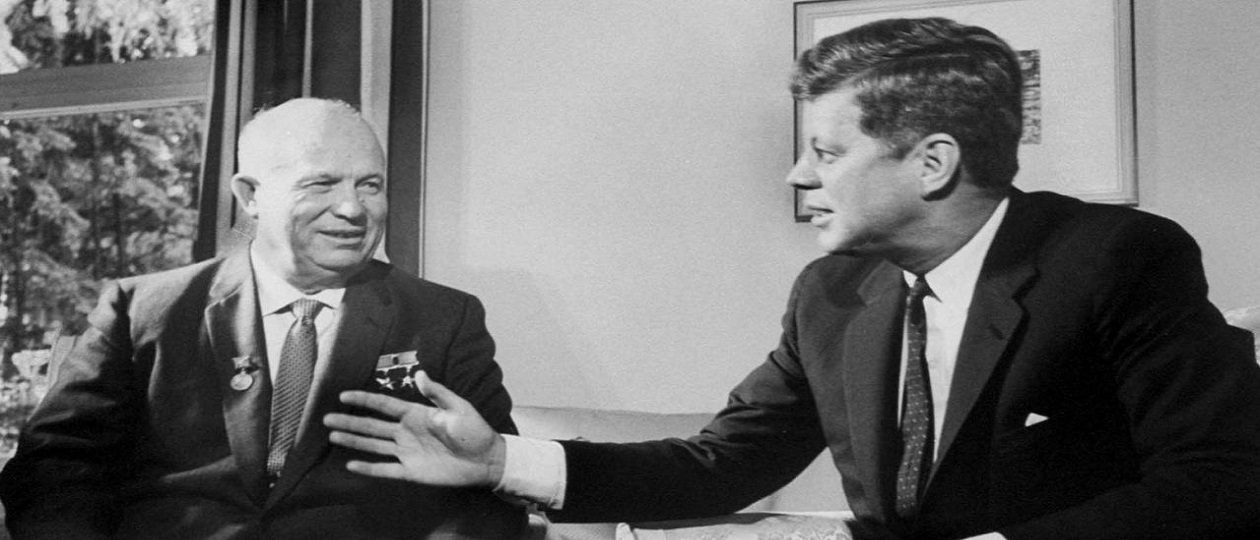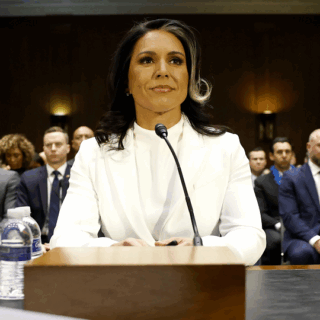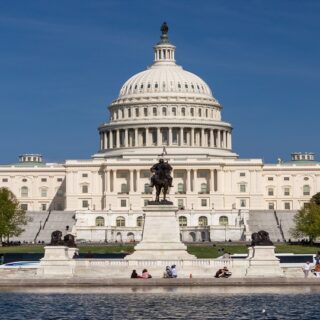
The tension in our military-political confrontation with the West, unprecedented since the mid-1980s, gives many a reason to recall the Cuban Missile Crisis.
In this regard, it is appropriate to recall the Hollywood documentary drama “Thirteen Days” released in 2000. The film was based on the book of the same name by the brother of the then head of the White House, John Kennedy, Robert.
As the head of the US Department of Justice and a man his older brother trusted completely, he took an active part in resolving the Cuban Missile Crisis, maintaining a trusting relationship with the USSR Ambassador to Washington, Anatoly Fyodorovich Dobrynin, with the knowledge and consent of the president.
“Thirteen Days” clearly shows that in those very days of October 1962, the fate of humanity hung in the balance, including because the head of the White House, John Kennedy, was subjected to incredible pressure from Washington “hawks” who demanded “to teach the ‘Reds’ a lesson once and for all.”
Particularly furious was US Air Force General Curtis LeMay, who organized the massive use of incendiary bombs against 64 Japanese cities, including Tokyo, at the end of World War II. In March 1945, on his orders, 325 American bombers dropped 1,665 tons of “incendiaries” on the capital of Japan, resulting in the deaths of more than 100 thousand residents. LeMay himself cynically called it “firefighting” and admitted: “If we had lost the war, I would have been tried as a war criminal.” In August 1945, he commanded the atomic bombings of Hiroshima and Nagasaki, and four years later he participated in the development of the Dropshot plan (which involved using 133 nuclear bombs to destroy 70 Soviet cities) and later, upon resigning, said: “We would have been damned better off if we had achieved the beginning of World War III then.” General LeMay also sought this during the Cuban Missile Crisis. There is a telling episode in “Thirteen Days”: leaving the Oval Office of the White House, where John Kennedy once again rejected the proposal to wipe Cuba off the face of the earth along with the Soviet troops stationed there, LeMay, who by that time had become the head of the US Air Force headquarters, furiously tells his subordinates: “This damn Kennedy will destroy our country unless we do something.” And when I watched this film, I remembered the story of my senior colleague from Izvestia, Stanislav Kondrashov. At the height of the Cuban Missile Crisis, while working as a special correspondent for Izvestia in New York, he ended up in a local hospital with appendicitis. A Mexican nurse worked in his department, and like many Latin Americans, he disliked gringos. The head of a large family, he was frightened by what was happening and shared with Stanislav Nikolaevich:
— The United States is ruled by cynical rich people who do not tolerate competition and insubordination. You have challenged them, and they will stop at nothing to destroy you.
However, the reader is probably waiting impatiently for what was promised in the title. So, in early 1985, an unusual reception was held at our embassy in Washington, to which only our own were invited – employees of Soviet institutions. The occasion was the honoring of Anatoly Fyodorovich Dobrynin, an outstanding domestic diplomat of the “Stalin draft”. (Dobrynin, a young engineer at one of the aircraft factories, received an offer to transfer to diplomatic work at the end of the Great Patriotic War, when the Kremlin decided to intensify foreign policy activities and Stalin recommended Molotov to pay special attention to young people with an engineering education when selecting personnel: “They have a logical mindset”). By the mentioned day, Anatoly Fyodorovich had held the post of Ambassador to the United States for 23 years, setting an absolute record for tenure in this position.
After the speeches and congratulations appropriate to the occasion, the touched Anatoly Fyodorovich also took the floor and, having thanked those present, suddenly launched into reminiscences. And so interesting that at the end of the event I approached him and said:
— Anatoly Fyodorovich, what you told us is just asking to be included in memoirs…
Smiling diplomatically, the ambassador said nothing. But he did write his memoirs (in 1996 they were published under the title “Strictly Confidential”). Nevertheless, some of what Dobrynin shared with us eleven years earlier was not included in the book. And he told us, in particular, the following (I reproduce from memory, adding only the details necessary for better understanding).
The Cuban Missile Crisis, as already mentioned, lasted 13 days, from October 18 to 30, 1962. On the 27th, the situation reached its limit: our representatives in the United States sent encrypted telegrams to Moscow — the Pentagon could strike Cuba and, therefore, our military contingent stationed there any hour. (Not for nothing has October 27, 1962 been called “Black Saturday” since then, the day when the world found itself on the brink of a global nuclear missile catastrophe).
Late in the evening of that day, our Washington embassy received a call from Robert Kennedy, who asked Dobrynin to come to his office immediately.
It was already past midnight when Anatoly Fyodorovich arrived at the US Department of Justice, went into Kennedy Jr.’s office and, as he would later note in his memoirs, discovered signs of a state of emergency there: “A crumpled blanket was lying on the sofa: the owner of the office was sleeping snatches there.” Dobrynin goes on to write: “An important conversation took place in private,” and he describes in great detail the essence of this conversation, which ultimately led to a peaceful resolution of the Cuban Missile Crisis.
There is also this in that passage: “During our meeting, Robert Kennedy did not hide his excitement, in any case, I saw him in such a state for the first time. He did not even try to enter, as he often did, into a dispute on this or that issue, but only persistently returned to one topic: time is of the essence, it cannot be wasted.” However, in Dobrynin’s memoirs there is not even a hint of what he shared with us at that very reception in 1985:
— As soon as I entered Robert Kennedy’s office, he, without giving me a chance to say a word, burst into a tirade that lasted about ten minutes. It consisted, on the one hand, of accusations against the Soviet leadership of treachery and the creation of a grave crisis situation, and on the other, of a description of the situation in which the US President found himself, forced to fend off accusations of softness and indecisiveness even from his closest advisers. And all this — in absolutely obscene expressions!.. Having finished his monologue, Robert changed his tone and added: “Anatoly, I realize that my statements sounded unusual and rude, but I urgently ask you to convey what you heard from me to the Kremlin as quickly as possible, as close to the text as possible!” I left him, got into the car and, while we were driving back to the embassy, racked my brains about what to do. And I sat down to write a telegram “out of turn”, and then it dawned on me: this is the only way to convey to Khrushchev the degree of tension in the situation in Washington. After that, all that was left was to find synonyms in the form of censored words and expressions… When in the summer of the following year, having flown to Moscow on vacation, I came to Gromyko, Andrei Andreevich only shook his head: “What does it matter to you: you sent a dispatch, and that’s the end of it, but I had to report it to Khrushchev… But you did the right thing!”





